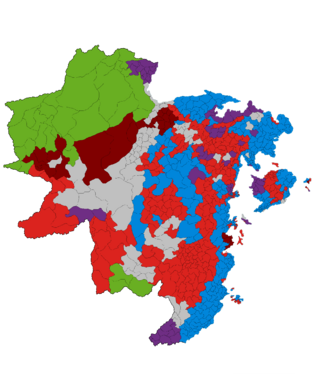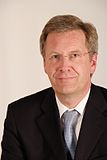2020 Aquitaynian general election
This article is incomplete because it is pending further input from participants, or it is a work-in-progress by one author. Please comment on this article's talk page to share your input, comments and questions. Note: To contribute to this article, you may need to seek help from the author(s) of this page. |
| |||||||||||||||||||||||||||||||||||||||||||||||||||||||||||||||||||||||||||||||||||||||||||||
786 in the Commons (394 for a majority) | |||||||||||||||||||||||||||||||||||||||||||||||||||||||||||||||||||||||||||||||||||||||||||||
|---|---|---|---|---|---|---|---|---|---|---|---|---|---|---|---|---|---|---|---|---|---|---|---|---|---|---|---|---|---|---|---|---|---|---|---|---|---|---|---|---|---|---|---|---|---|---|---|---|---|---|---|---|---|---|---|---|---|---|---|---|---|---|---|---|---|---|---|---|---|---|---|---|---|---|---|---|---|---|---|---|---|---|---|---|---|---|---|---|---|---|---|---|---|
| Opinion polls | |||||||||||||||||||||||||||||||||||||||||||||||||||||||||||||||||||||||||||||||||||||||||||||
| Turnout | 63.7% ( | ||||||||||||||||||||||||||||||||||||||||||||||||||||||||||||||||||||||||||||||||||||||||||||
| |||||||||||||||||||||||||||||||||||||||||||||||||||||||||||||||||||||||||||||||||||||||||||||
 Colors denote the winning party, as shown in the main table of results. | |||||||||||||||||||||||||||||||||||||||||||||||||||||||||||||||||||||||||||||||||||||||||||||
| |||||||||||||||||||||||||||||||||||||||||||||||||||||||||||||||||||||||||||||||||||||||||||||
Template:Politics of Aquitanye
The Aquitaynian general election of 2017 took place on Friday 8 December. Each of the 786 constituencies elected one Member of Parliament (MP) to the House of Commons. Under the guidelines set forth in the constitution, the election was held on time.
The Royalist Party, which had governed as a senior coalition partner from 2014 was defending a working majority of 17 seats against the People's Party, the official opposition led by Kirk Macklin. The Royalist Party viewed the election as the best opportunity to secure its hold on a majority in parliament and continue its agenda into 2023.
Opinion polls had shown consistent leads for the Royalist Party over the People's Party. The drastic turnaround from the typical two-party status quo in the 2017 election saw much of the ground gained by the then-newly elected Nation First movement be regained by the Royalist and People's Party, respectively. Both major parties hailed the election as a great success, given they regained almost all of the seats they had lost in the previous election to non-instutitional newcomers. The Royalist Party regained a 39% majority in the House of Commons, only 4 points removed from their 2014 high. Likewise, the People's Party regained twelve constituencies to close the gap to only 7 lost seats on aggregate from the 2014 election. The now-established Nation First party saw a net loss of 5 constituencies, who largely returned to their typical People's Party candidates after a lackluster legistlative term that saw little progress on the party's controversial base. The Republicans also came away with a net-positive result, regaining 12 seats and now holding a record-high 85 seats in the House. The Independent Socialists and Environmentalists who form the bulk of the Unified Parties Coalition, saw the largest combined loss of seats collectively losing 29 constituencies.
Electoral system
Each parliamentary constituency of Aquitayne elects one MP to the House of Commons using the STV system. If one party obtains a majority of seats, then that party is entitled to form the Government, with its leader as Prime Minister. If the election results in no single party having a majority, then there is a hung parliament. In this case, the options for forming the Government are either a minority government or a coalition.
Voting eligibility
To vote in the general election, one had to be:
- a registered voter;
- aged 18 or over on polling day;
- be an Aquitaynian citizen with single or dual citizenship;
- a resident at an address in Aquitayne or an Aquitaynian territory, or an Aquitaynian citizen living abroad who has been registered to vote in Aquitayne within the past 15 years and;
- not legally excluded from voting (felony convictions may carry a sentence of revocation of the right to vote for some convicted criminals, for example, or any criminals at large)
Individuals had to be registered to vote by midnight 14 days before voting day (8 December). A person who has two homes (such as a university student with a term-time address and lives at home during holidays) may be registered to vote at both addresses, provided they are in separate districts, and can only vote in one constituency per election.
In the lead-up to this election, it was estimated that over 2 million Aquitaynians between 18 and 35 registered to vote before the deadline, and over 200,000 were under the age of 22.
Date and cost of election
Timetable
| 16 June | Prime Minister Richard Larrow formally announces election date |
| 19 June | MPs voted to dissolve Parliament |
| 23 June | Royal Proclamation under Article II of the Constitution issued to formally dissolve parliament |
| 23 June | Royal proclamation was issued summoning a new Parliament |
| 24 July | Deadline (5pm) for the delivery of candidate nomination papers |
| 24 July | Deadline (7pm) for the publication of the Statement of Nominated Persons |
| 1 August | Earliest date where polling officers could issue polling cards to voting locations |
| 1 September | Party primaries are held if more than one candidate for a single party files candidacy papers within the deadline in the same district as another candidate |
| 20 September | Advertising gag closes |
| 15 November | Deadline for proxy votes to be submitted in the mail (verified by postal stamp) |
| 24 November | Deadline (5pm) for the public to register to vote |
| 8 December | Voting day (polling stations opened at 8am and closed at 9pm or once voters present in a queue at or outside the polling station at 9pm had cast their vote). Counting of votes started no later than 2am on 9 December. |
| 18 December | Parliament re-assembled |
| 25 December | State Opening of Parliament |
Cost
The cost to the taxpayer of organizing the election was $175 million NSD - slightly more than the previous election in 2014, which cost taxpayers $160 million NSD.



